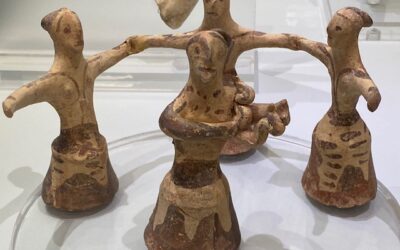Are you A Patriarchal Daughter?
The woman I am talking about, usually doesn’t know she is a patriarchal daughter. She’s not fond of reflection or self questioning, because she has the backing of some big guys, important guys in her world.
Her guys may not be physically big, they are more specifically powerfully big, influential types who have a lot of status and power. They believe a lot in themselves.
They believe that if their golden light touches a woman, she too is imbued with their glow.
Consequently, she feels good about herself, because she knows the right way to do things, she has their approval, she works hard to please the right people and, providing she stays on top and performs well, she is usually richly rewarded for her loyalty. She is the daughter of the patriarchy and she has a place at the table!!!!
I’m not a patriarchal daughter.
You might ask, “Why aren’t you this breed of woman? I am not in this group because I don’t fit with the patriarchy. In fact, I am usually disliked by the patriarchy.
I was not, or not for very long (stopped when I learnt to talk), my father’s favourite. I did not align or admire the significant men in my orbit.
The Obvious Signs of my Non-Patriarchal Status
There are obvious signs of my non-patriarchal status which I’ll illustrate with examples.
Generally, I have low or medium standards when completing activities or tasks. I get them done, but I don’t pursue high standards. If I do well or am accomplished at something, it’s due to passion and not perfectionism.
I do not care or look after others as a particular and focused role in my life (despite being a psychologist, and despite caring about my family and friends!). I’m still a caring person, just not a “caring for” person.
And powerful men, men in public positions of power, do not appreciate this about me. I’m not their idea of a “good woman”. I am often a threat to the patriarchy. I’m a woman they don’t recognise and can’t control and there’s no room for threats for these patriarchal types, men and women.
The individuals I’m talking about are at the top of the tree, they’re leading the game, or heading there. An “other type” of person, such as myself, but also someone ethnically “other’, disabled “other” or gendered “other”, is not going to share their view from the top of their tree.
The view of their landscape is theirs, and only those prepared to climb slowly, and at their beckoning, will be allowed to climb towards the top. If they don’t instruct you, that you can climb to the top, then you are not welcome, and will be pushed down, thrown down or tricked into going down. The top is only for their club. And replaced by only those in that club.
How do you know if you are a patriarchal daughter?
There is a myriad of ways to spot a patriarchal daughter. Some of her behaviours are very subtle and hard to detect. And to be fair, this is a continuum of behaviours, so some women do an upward, linear climb up the tree increasing their patriarchal daughters’ behaviours, others are on again and off again, as to what degree they comply to the patriarchal rules and values.
This changes for some women, and changes according to the context and environment.
However, for most patriarchal daughters at the very top, they have no idea they are patriarchal daughters, they don’t naturally reflect.
Those on their way up can be more reflective. Perhaps they haven’t fully committed to the team yet. Perhaps they’ve got close to rising high up the tree but are having doubts, other aspects of themselves are competing, or just crying out in pain at being left behind.
In summary, you’re a patriarchal daughter if you have positions of power within the patriarchy, if you are aligned with those who have positions of power within the patriarchy and also if you experience the privileges that come with being a member of the status quo, that bequeaths power and control ie money, status, high office.
These are dangerous times for the patriarchal daughter, for never has she been more challenged to consider what she’s doing and to question how it’s working out for her. The alternative, feminism, also left leaning politics, social justice causes, and beliefs, are changing and impinging on the patriarchy.
Patriarchal daughter’s choices are currently more openly questioned, and the alternatives are in her face (that is, until the ABC banishes her alternative voice from all social and streaming media outlets, like the Q&A episode of feminists).
And watch “Total Control” with Deborah Mailman and Rachel Griffiths, the political drama on the ABC, a fascinating exploration of patriarchal daughter, or not, and the issues both types of women face).
Who Are the Actual Patriarchal Daughters of Today?
The patriarchal daughter is:
| Michaelia Cash | Julie Bishop | Pauline Hanson | |
| Bettina Arndt | Ivanka Trump | Theresa May | Bridget Mackenzie |
- She may be your mother, your aunt, your boss, your teacher, your local community leader.
- You will know she is a patriarchal daughter when competing demands or needs are put to her and in the dilemma she finds herself, she chooses to favour a man, to prioritize a man, to back a man, or prioritize his values and beliefs as set out by patriarchal values.
- She is in the dominate male views camp, believing that his priorities rule.
- She is not the alternative viewpoint, not about sisterhood and her own needs.
Who Are the Non-Patriarchal Daughters?
| Julia Gillard | Germaine Greer | Julia Gillard | |
| Greta Thunberg | Alexandria Ocasio-Cortez | Penny Wong | Jacinda Ardern |
- These women openly stand up to patriarchy.
- They fight the privileges of those who do the bidding of patriarchy and they also often suffer, the ridicule and judgement of patriarchal power players.
But women who defy patriarchy can be found in any setting.
- They can be in your family, in your workplace and in your local committees and schools.
- One thing is for sure, she will have a story, a common story.
The Common Story of the Non-Patriarchal Woman
This is a story of rejection, failure, despair, alienation and perceived powerlessness, together with some achievements and accolades, coming and going in between her losses and shaming’s.
Usually, she has also learnt to fight against these conditions and her strength and clear vision has come at the cost of these things, a silver lining arising from being pushed down the tree, kicked out of the group and humiliated on the ground alongside the roots of the tree.
Eventually, often hard won, she will make the choice of not wanting to climb that tree anymore.
When she gives up, when she surrenders, she wins back herself. Now the roots of the tree are her much loved home and ally.
How To Spot a Patriarchal Daughter or The Patriarchal Self
I can’t emphasise enough that you will know, will recognise, your own inner patriarchal daughter or another’s, when you see this woman, your inner patriarch, make her choices.
For example, this woman might enjoy the experience of going out to have a walk in the sun, a coffee with a friend, but no, she doesn’t go.
If her house is dirty, she worries neighbours may visit and witness the dust, so she chooses to clean and not walk in the sun, not laugh in the café.
Maybe she’s taken the step to be out with friends, having a lovely time, but an inner voice is nagging at her, there’s a family member at home, possibly waiting for her. They are going unfed.
It is her job to feed them. She goes home and cooks, leaving her personal needs behind.
Or the boss has sent an email. A direction for attention is pending and therefore she must cut short her pleasure and attend to their needs as a priority.
What kind of a woman is she if she doesn’t prioritise them?
What failure is she as a good woman if she absents her role and doesn’t look after their needs?
So, what does she do? She answers the email, she drives home to her kitchen, her waiting family.
She may argue she likes looking after them. This is her chosen role.
And yet…..if there were no repercussions, no questions requiring justifications, explanations, no raised eyebrows, sighs, and instead a smile and enquiry of interest in her whereabouts, her pleasures, would she rush home? Would she answer that email? She may never find out the answer to that.
What Are The Patriarchal Daughter’s Behaviours
Perfectionism is a core behaviour or attitude of a patriarchal daughter.
Good enough is not good enough. In this context, there is little room for unaccounted for events, illnesses, tiredness or any weakness.
The standard must be reached, no matter what!
This applies especially to herself, but usually also to everyone around her. You rarely hear a patriarchal daughter say, “That’ll do”. And even when she reaches her perfectionistic standards, she may not rest on her laurels.
The job is never done, the house is never clean, the appropriate standard is never really reached. In her home, everything is accomplished, polished, swept, put away (or she is trying to!).
Her home is typically a showcase (though she often doesn’t think so!). For younger generation patriarchal daughters, it might be her work desk is always cleared, her emails attended to and never left, the requests piling up are attended to and a high standard is the only standard that will suffice.
Patriarchal daughters lend their support, their energy, their allegiance to the patriarchy. They serve, this is their verb. Oftentimes this means their father, their husband, their boss and sometimes, particularly older generations, and more patriarchal cultures, their sons.
Males will usually take priority. Their needs and demands are what she listens and attends to first. Intrinsically, they are more important, have more relevance, power, influence and greater entitlement to her attention.
Males have more significant needs, have more significant opinions, have greater knowledge, insight and skill or mastery.
Some of this is unconscious, the decision to prioritise males, the general patriarchy. It comes automatically. So, there’s not actually a decision made as she prioritizes her day, a decision regarding the people who will be attended to.
She is as if under a spell.
If you ask her why she just chose to answer him, and not her, at work, at home, she may not even have an answer. It’s just what she does.
She often doesn’t understand and even have an awareness of what is driving her behaviour and the decisions she is making.
This makes it hard for her to change.
Women Show New Ways of Being and Alternative Roles
These new models of being are available and thriving. There are more and more examples than there have ever been of women demonstrating their choices to be a different kind of woman.
Popular writers are starting to address this issue, Annabelle Crabb and her book “The Wife Drought”, Kitty Flannigan and her satire on “498 rules for life”, Jane Caro’s “Accidental Feminists “.
There are many others too. And younger women are changing things up and demanding alternative roles.
However, there is conflict in their younger needs…..for husbands, children and affirmation/approval.
H2 Why Don’t Women Keep Their Own Name After Marriage?
I’m going to finish with a question for these younger women, who I deeply admire and respect but at times are still confused by.
“Why are you changing your name when you marry?”. If you answer because of the children, “Why can’t the children take your name?”, and I am confused, “What’s wrong with family members having different names?”.
I respect women who chose to change their name when they marry but for the life of me, I don’t understand why!
You can hear it I am sure……is this patriarchy? And if so, what would it look and feel like to drop this condition, or this membership?
Bettina Arndt Awarded Australia Day Honour in 2020
The awarding of Bettina Arndt on Australia Day, 2020 for services to the community, specifically gender equity, was a very, very sad day for Australian men and women. Her well documented views have caused enormous damage to thousands, maybe millions of Australians.
Supporting gender INEQUITY has meant those perpetrators of sexual and domestic violence have now been affirmed in their entitlement to distract attention away from their own violence and responsibility for offending.
This is an outrageous misjudgement on the part of the committee who awarded her this acknowledgement.
I believe these awards will no longer have much relevance in the event they seek to provide a platform to individuals whose views support violence.
The worst example of Arndt’s behaviour, supporting a middle-aged paedophile, who serially assaulted a young girl in his care. Bettina Arndt published that she believed the young girl’s sexual precociousness was to blame.
The danger of elevating Arndt’s position to award winning status is simply unbelievable…disturbing to the core.
Bettina Arndt is a daughter of the patriarchy, writing for the Murdoch Press, aligning herself with Andrew Bolt.
Her powerful boys will continue to reward her AT THE EXPENSE OF OUR SAFETY AND A FAIR SOCIETY.
We so need to reflect on this, as individuals, as a country.
If you’re enjoyed reading this article please share.



